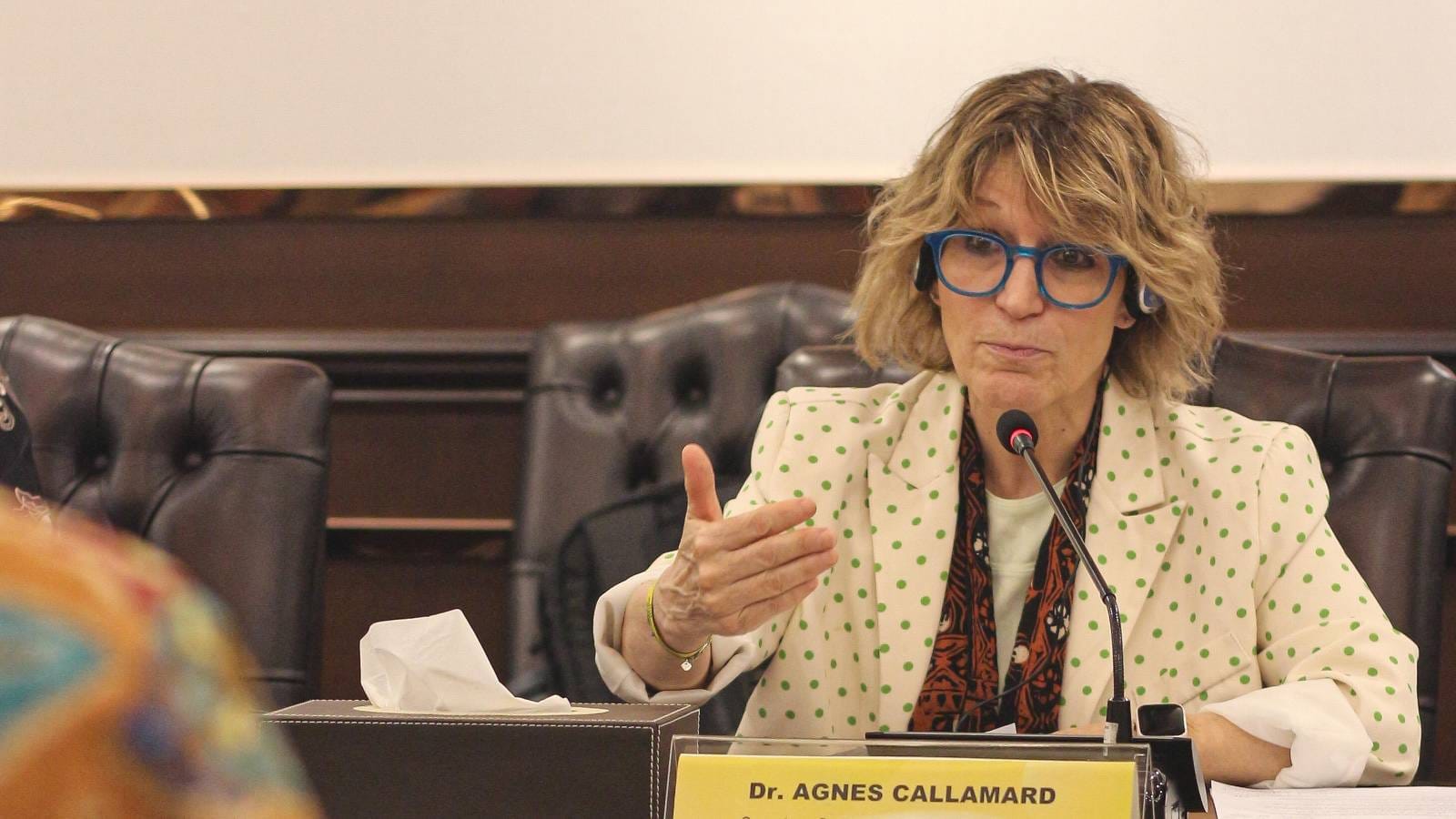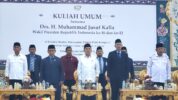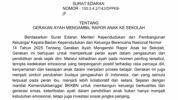Amnesty International’s Agnes Callamard Urges Indonesia to Address Rising Authoritarianism and Human Rights Violations
JAKARTA, RAKYAT NEWS – Agnes Callamard, the Secretary General of Amnesty International, concluded a high-level visit to Indonesia on March 7, 2025, as part of a global campaign against the increasing rise of authoritarian practices around the world, a trend that has been evident in Indonesia over recent years.
During her visit, which took place from March 4 to 7, 2025, Callamard met with key officials, including those from the Attorney General’s Office, to discuss the critical role of the judiciary in addressing past human rights violations and preventing further criminalization of human rights defenders in Indonesia.
On March 6, Callamard also met with the Chief Justice and other Supreme Court justices to discuss the importance of safeguarding judicial independence, which has come under threat in countries experiencing rising authoritarianism, much like recent attacks on the judiciary by former U.S. President Donald Trump.
“I am here in Indonesia as part of a global campaign against authoritarian practices that are spreading across the globe, as part of the global resistance against human rights abuses and the dismantling of global governance led by Donald Trump and his allies,” Callamard stated on March 7, 2025, at Amnesty International Indonesia’s office in Jakarta.
“Before visiting Indonesia, I was in Sri Lanka where I conveyed the same message to the new government there. Now, I am here to assess the human rights situation in Indonesia,” she added.
Callamard highlighted that the global rise in authoritarianism is unfortunately reflected in Indonesia, noting that in recent years, human rights violations and the increasing militarization of civil spaces have become more widespread. This is not a new phenomenon in Indonesia, she emphasized, pointing to the nation’s history of unresolved human rights violations dating back to 1965.
During her meetings with Indonesian authorities, Amnesty International urged an end to impunity for those responsible for human rights violations in the country.
“We are calling for the immediate investigation of serious human rights violations that remain dark chapters in Indonesia’s history. This includes the killing of Wawan, the son of Mrs. Sumarsih, during the 1998 student protests, a case that remains without justice. We call for an ad hoc human rights court to investigate this case,” Callamard said.
She also expressed her highest respect for the families and relatives of victims who continue to fight for justice every day, month, and year, including organizing “Aksi Kamisan,” a weekly vigil to remember the victims.
“During my visit to Indonesia, I also met with several victims of human rights violations, including those who participated in the ‘Indonesia Gelap’ protests last month and demonstrations in Papua. In these cases, we have seen excessive use of force by security personnel against human rights defenders. We are also monitoring the criminalization of actions that are legally protected, such as protests on climate change, despite legal provisions that protect citizens advocating for public interest (Anti-SLAPP laws),” she stated.
In Papua, Amnesty International Indonesia has documented cases of torture, extrajudicial killings, arbitrary detention, with no indication that these cases have been fairly processed.
“Last year, we documented a case of torture that led to a death, where thirteen security personnel were allegedly involved, yet none have been brought to trial. It is clear that there is an urgent need for justice in these cases,” Callamard said.
She urged Indonesian authorities to take all necessary steps to end these violations and ensure the protection of human rights in the country.
“I also call for a greater role for independent media, civil society, and religious leaders to stand against the rise of authoritarianism in this country,” Callamard said.
“This may not concern you today, but make no mistake—if left unchecked, it will affect many more people, both in Indonesia and around the world,” she warned.
Amnesty International called on Indonesia to immediately end impunity and investigate serious human rights violations. The organization also urged Indonesia to strengthen solidarity with other developing countries to combat authoritarian practices globally.
70th Anniversary of the Bandung Conference: A Call for Anti-Oppression Solidarity
Callamard also addressed the growing organized assault on human rights led by current U.S. President Donald Trump, a global phenomenon that must be stopped.
“We call on the Indonesian government to cooperate with other governments in the region,” she said.
This year, in April, Indonesia will celebrate the 70th anniversary of the Asian-African Conference. Callamard reminded that 70 years ago, in 1955, Asian and African countries came together in Indonesia to reject colonialism and herald a new era. However, 70 years later, the world faces a regressive era marked by renewed colonialism, oppression, military aggression, and genocide.
For Callamard, it is now time for Indonesia, as a leader in the region, to call upon the leaders of Asian and African nations to rise together and declare: “This is not the era and global order we want to build!”
In 1955, Asian and African countries at the Bandung Conference collectively declared the right of peoples to self-determination and respect for human rights.
“Now, in 2025, it is time for us to reaffirm that historic role. I call on Indonesia to once again play that historic role and join with other developing nations in rejecting Donald Trump and his path toward global destruction,” Callamard concluded.
During her stay in Jakarta, Callamard met with officials from the Supreme Court, Attorney General’s Office, the Governor of Jakarta, as well as representatives from civil society organizations, journalists, and victims and families of human rights violations.
While concerned about the rise of authoritarian trends in Indonesia, Callamard remains optimistic about the strength of civil society, women’s rights activists, feminists, young women, high school students, and others who continue to stand firm in advocating for human rights values.
Callamard also expressed hope after meeting with the Jakarta Governor, who committed to not endorsing any policies that would allow polygamy in his administration. “I call on all governments to follow his commitment and firmly declare that there is no place for polygamy in Indonesia and in the world,” she concluded. (Uki Ruknuddin)



























Tinggalkan Balasan